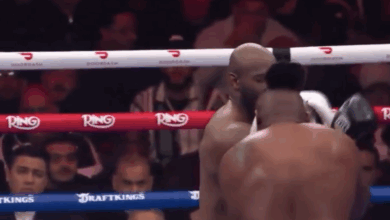The Psychology of Betting: Lessons from Sports and Casinos
Gambling has been part of human play since ancient dice were carved from bone. Yet the reasons people keep placing chips on a felt table or filling out a soccer parlay slip run deeper than luck. Early in any discussion, it helps to picture the rush a new bettor feels while opening Bet Inferno on a phone during game day. That tiny glow promises a win that may or may not come, but the heart starts racing anyway. Scientists call that feeling “anticipatory arousal,” and it is the spark that lights most wagers, from casual bar bets to billion-dollar tournaments. By looking at research from sports psychology and casino studies, one can see how reward circuits, memory, and emotion push players toward risk and sometimes keep them there too long. This article breaks those forces into simple pieces and offers lessons anyone—fan, coach, or weekend roulette spinner—can use to keep the fun side of betting in focus. Just as a coach studies film before a match, understanding these mental playbooks can turn a risky guess into a thoughtful strategy.
Why the Brain Loves a Good Bet
Every roll of dice or last-second three-pointer comes with a burst of dopamine, the brain’s natural “feel-good” chemical. Dopamine is released in advance of a possible reward, not after. That timing matters. It means the mere hope of winning keeps people engaged, even when losses follow. In experiments, lab rats pressed a lever more often when the reward arrived only part of the time. Humans act the same way with scratch tickets and live-bet lines because partial, unpredictable payoffs fire the reward circuit harder than guaranteed ones. The effect is called variable-ratio reinforcement, and it sits at the center of both casino slots and fantasy football apps. Sports bettors get an extra layer of excitement because they think skill can tip the odds. That belief, true or not, raises confidence and spurs more wagers. When the mind links skill, chance, and dopamine, it forms a powerful loop that turns “just one more bet” into many.
The Role of Uncertainty and Near Misses
Uncertainty does more than keep viewers on the edge of their seats; it hooks the brain’s problem-solving center. Researchers have found that when a slot machine shows two cherries and almost a third, the brain reacts much like it does to a small win. These “near misses” trick players into thinking they are getting better or closer, even though odds never change. Sports fans experience a similar tug during overtime or penalty kicks. Heart rates rise, palms sweat, and memories form more deeply because high emotion glues events to long-term storage. Casinos and sports broadcasts capitalize on this by stretching suspense—think spinning reels that slow down or replay angles that build drama. While excitement is enjoyable, it can also cloud judgment. People begin to chase the feeling rather than the actual reward, a habit called “hot cognition.” Recognizing that near misses are random, not progress, helps bettors step back and make calmer, math-based choices.
Lessons from Professional Sports Bettors
Pro bettors treat wagering less like a thrill ride and more like running a small business. First, they track every stake, outcome, and emotion in a simple spreadsheet. This record shows patterns that memory alone would hide, such as the tendency to bet bigger after a narrow loss. Second, they shop for value, not for favorite teams. Odds from different books can vary just enough to shift the edge from negative to positive. Third, they set strict bankroll rules: usually one to two percent of total funds per bet. By keeping stakes proportional, a losing streak becomes a bruise rather than a wipeout. Perhaps most important, seasoned bettors accept boredom. Waiting for the right line or skipping a game altogether protects profit. Classroom studies on self-control support these habits. People make sharper decisions when they plan in advance and remove tempting options, like disabling in-play notifications. Average fans who copy these simple systems can enjoy the game without courting disaster.
Bringing It All Together: Smarter Play, Healthier Mind
The science of betting paints a clear picture: strong emotions, random rewards, and social myths interact to push people toward riskier behavior. But those same insights provide useful guardrails. A healthy routine begins with setting a budget before a season or casino visit starts and treating that number as spent entertainment money, not potential profit. Next, limiting distractions—turning off late-night highlight shows or avoiding friends who boast about huge parlays—cuts the urge to chase losses. Breaks matter too. Research shows that a five-minute pause after each wager lowers arousal and improves later decisions. Apps that lock users out for short cool-down periods are even better. Finally, adding non-betting joys, like cooking during halftime or exploring the venue’s live music, keeps gambling in its proper place: as one activity among many. When players balance curiosity with discipline, the thrill remains, but the risks shrink. Knowing the psychology turns the bet into a choice, not a trap.



